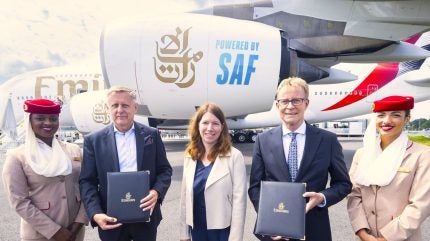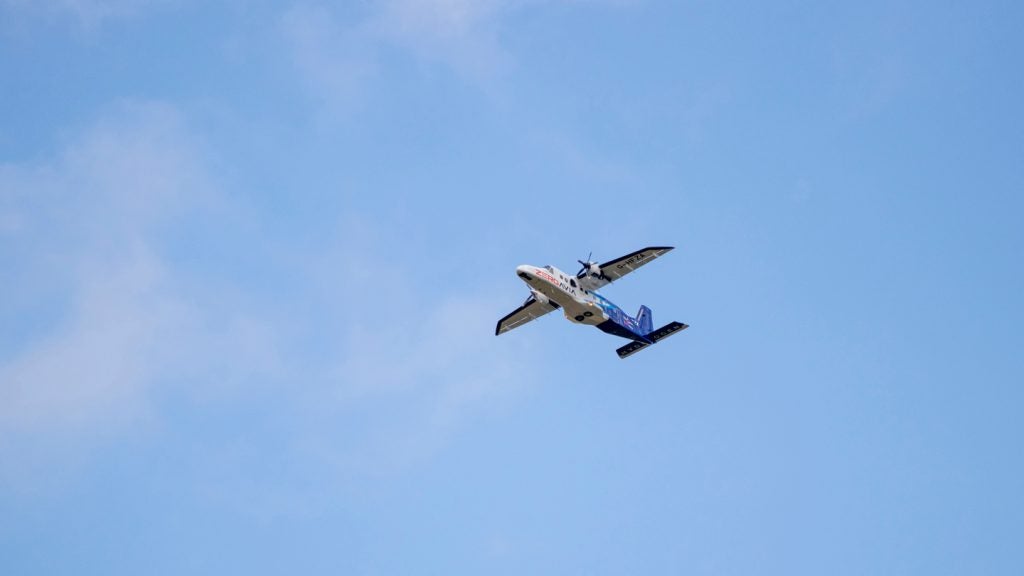
Emirates has joined the Aviation Initiative for Renewable Energy in Germany (aireg) with a signing ceremony at ILA Berlin, under the wings of the Dubai-based airline’s SAF-powered A380.
It is the first international airline to join the group and is currently the only passenger-carrying member (after the folding of Air Berlin and departure of Lufthansa).
Emirates is arguably the leading airline in SAF commitments in 2024, with delivery deals signed for multiple airport hubs, including Amsterdam Schipol and London Heathrow. The company said the signing with aireg shows the “commitment towards improving… sustainability”.
“The pledge will see the airline contribute to efforts to ramp up locally produced SAF in Germany,” it added.
Speaking to Airport Technology after the signing ceremony, the chair of aireg’s board (and Airbus executive) Siegfried Knecht said the landmark expansion would hopefully broaden the “attraction” of SAF initiatives in Germany and around the world.
“We’re more than happy having now Emirates, because this may not only give aireg a broader attraction, but I at least hope will give the topic a substantial attraction as well, and that’s what matters from my perspective, because it’s so important,” Knecht said.
How well do you really know your competitors?
Access the most comprehensive Company Profiles on the market, powered by GlobalData. Save hours of research. Gain competitive edge.

Thank you!
Your download email will arrive shortly
Not ready to buy yet? Download a free sample
We are confident about the unique quality of our Company Profiles. However, we want you to make the most beneficial decision for your business, so we offer a free sample that you can download by submitting the below form
By GlobalData“We need all hands on deck in order, you know, to get us on track for the 2050 [SAF goals],” he added.
Tim Clark, Emirates’ president said the relationship will be an important lever to help bring down the cost and availability of SAF.
“We’re very pleased to become a member of aireg, and contribute to Germany’s efforts to build its capacities to become a centre for SAF production. Our industry requires large quantities of sustainable aviation fuel at a commercially viable cost, yet the shortage persists,” he said.
“Ramping up and furthering technologies for the production of SAF requires the partnership and support from multiple stakeholders and we are confident that aireg will lead in this regard.”
For the aireg chair, the importance of a UAE-based airline joining its number is clear. The oil-producing region has committed to SAF production, and Knecht said he hoped Germany would soon see the fruits of the relationship in a tangible form.
“I hope that not only SAF will be supplied in the UAE, but what, for example, the German Government is looking at its cooperation with the UAE with respect to H2 derivatives. So importing either a crude or an E-methanol, and using this in a refinery in Germany making either SAF out of it or renewable diesel or gasoline,” he said.






